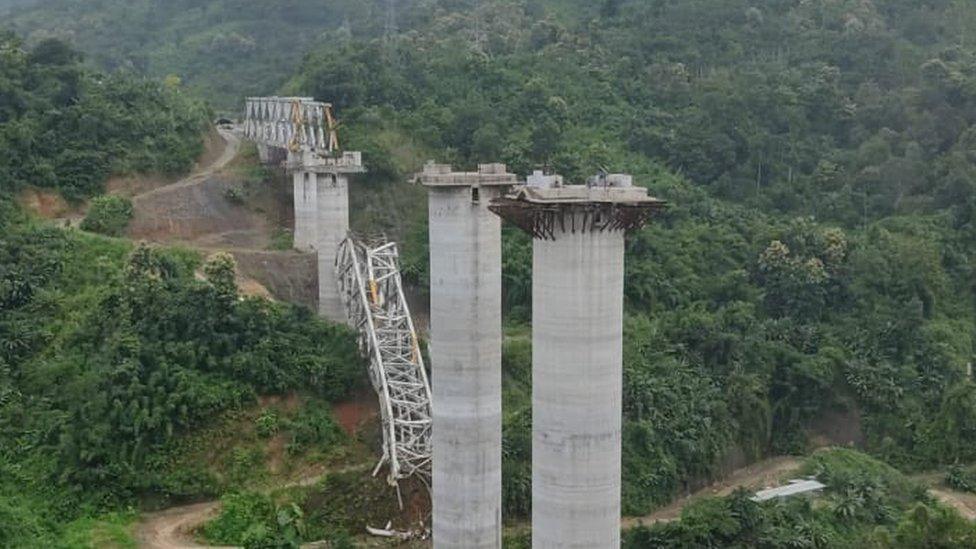Uttarakhand tunnel collapse: Drilling machine brings hope to trapped Indian workers
- Published
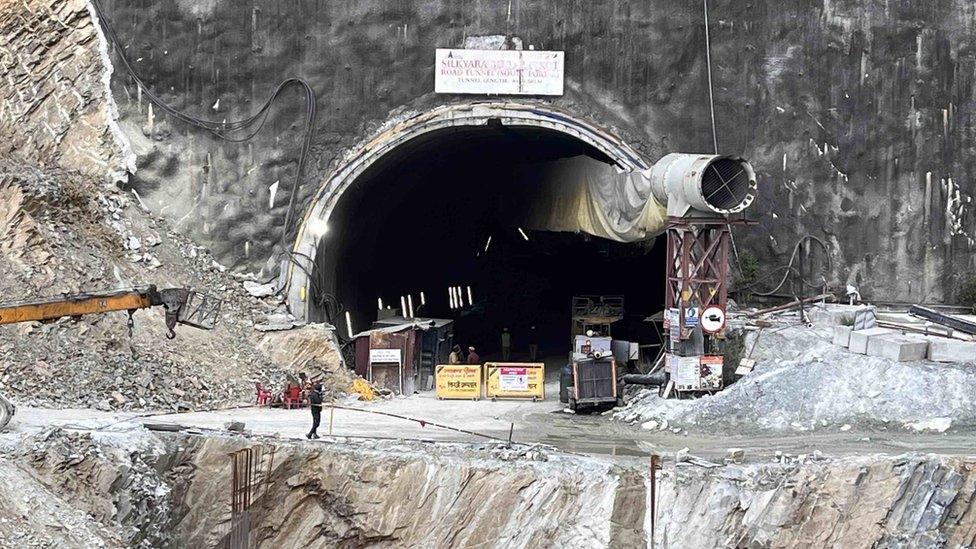
The 40 workers have been trapped for four days
A specialist drilling machine has been deployed to rescue 40 Indian workers trapped inside a tunnel for more than four days in Uttarakhand state.
It was flown in from Delhi on Wednesday after attempts to drill through the debris using another machine failed.
The machine will help drill a passage so that a pipe can be inserted through which the workers can crawl out.
They have been stuck inside since Sunday, after a landslide caused a portion of the tunnel to collapse.
Authorities told the BBC that they did not want to speculate how long the task of clearing the debris might take, but they were expecting "a positive development" by Thursday evening.
However, federal minister VK Singh on Thursday told reporters that rescue operations could stretch on for another two-three days.
The accident occurred at 05:00 local time (23:30 GMT) on Sunday in the Himalayan state of Uttarakhand. A portion of the Silkyara tunnel, around 200m away from its opening, collapsed while the workers were inside. The mounds of debris cut off oxygen supply to the workers.
The workers are trapped some 200m into the tunnel and are safe, officials said. Rescuers have been providing the men with food, water and oxygen through pipes and are communicating with them through walkie-talkies. However, some reports, external said that a few of them have been experiencing headaches, anxiety and nausea.
Authorities have denied this and said the workers are not injured.
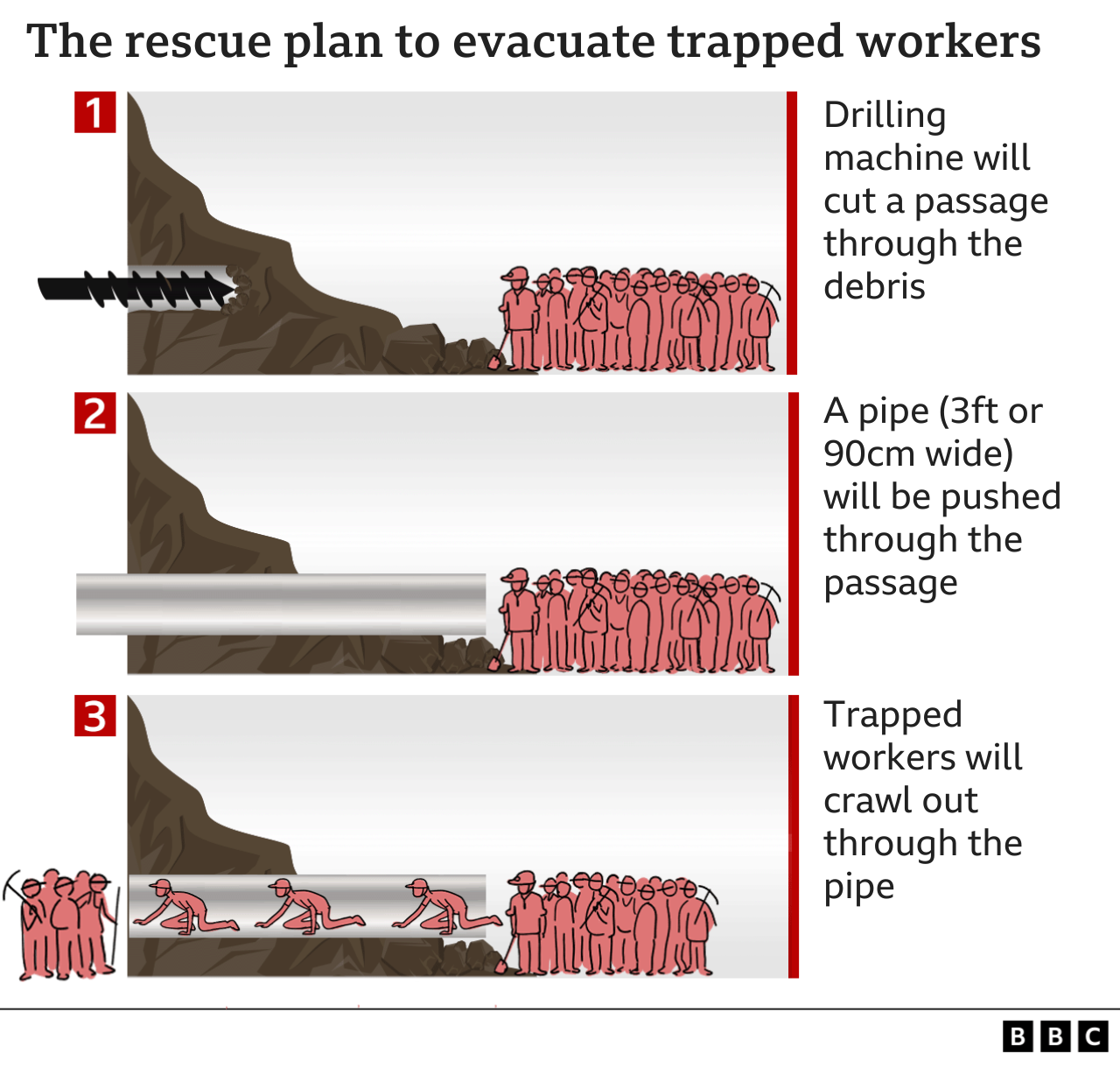

Deepak Patil, who is in charge of the relief and rescue work, told the BBC that sufficient oxygen was being pumped inside the tunnel, so "there wasn't going to be any problems in terms of breathing". He added that the tunnel was well-lit and that morale was high among the workers.
The new equipment - a heavy-duty horizontal drill with an augur or with a drill bit - was flown in by military aircraft in three parts and was assembled at the accident site.
Experts say the machine is powerful enough to dig through five metres of debris per hour.
The plan now is to drill a hole that is wide enough to fit a metal pipe of 900mm diameter. Officials say that the workers can then crawl through the pipe and exit the tunnel.
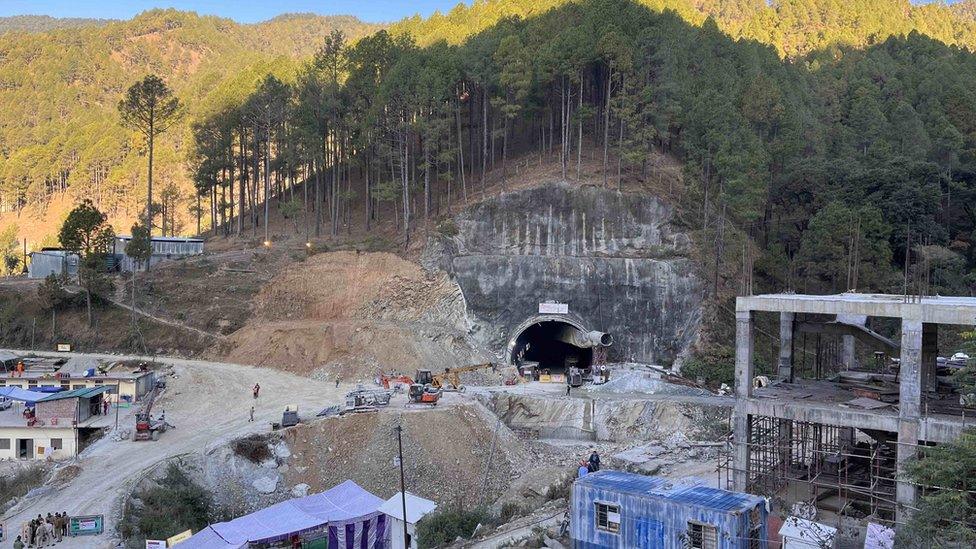
The tunnel passes through mountainous terrain
But this might be easier said than done. Another machine used on Wednesday failed to cut through the debris and rubble at a high enough speed.
Falling debris have hampered the operation as loose soil and rocks keep falling back into the cleared areas. Officials say that frequent landslides have made the job even more difficult.
Apart from using a drilling machine, rescue officials have also tried digging through the debris using excavators, but these attempts too have been unsuccessful.
As time ticks on, anxiety over the safety of the workers is growing among their friends and family.
Family members of some of the workers told the BBC that they were worried about the health of their relatives.
Dharam Singh, whose son Vijay Kumar is trapped in the tunnel, said he was praying that his son would be rescued soon. Mr Singh said that he left his home in neighbouring Himachal Pradesh state as soon as he got the news about the tunnel collapsing.
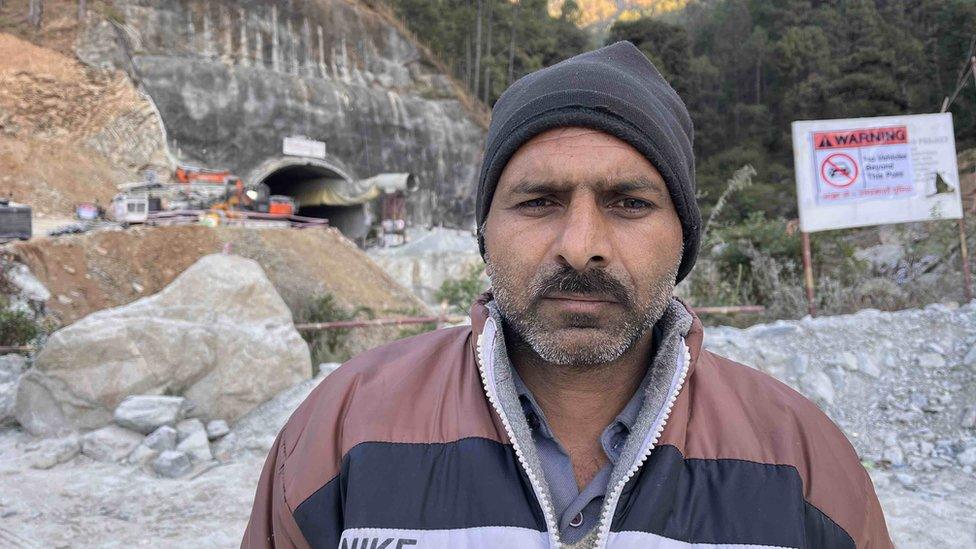
Dharam Singh's son is trapped inside the tunnel
Since then, he has been waiting outside the tunnel, desperate to see his son emerge from it.
"When I arrived here, I spoke to my son through a pipe that officials are using for communication," Mr Singh said, adding that that he felt a wave of relief as soon as he heard his son's voice.
"I told him, 'Son, I am your father here. I am here outside. I am waiting for you. You'll come out soon. Don't worry'," Mr Singh told the BBC.
"My son tried to console me and told me everything will be alright," he added.
The Silkyara tunnel in Uttarkashi district is part of the federal government's ambitious highway project to improve connectivity to famous pilgrimage sites in Uttarakhand state. The mountainous state, where several Himalayan peaks and glaciers are located, has some of the holiest sites for Hindus.
BBC News India is now on YouTube. Click here, external to subscribe and watch our documentaries, explainers and features.

Read more India stories from the BBC:

- Published2 November 2022
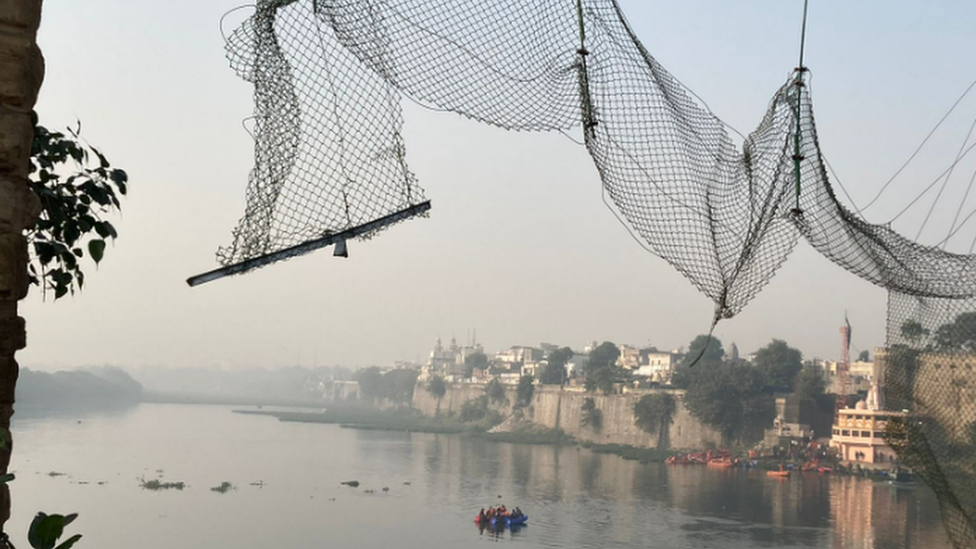
- Published23 August 2023
